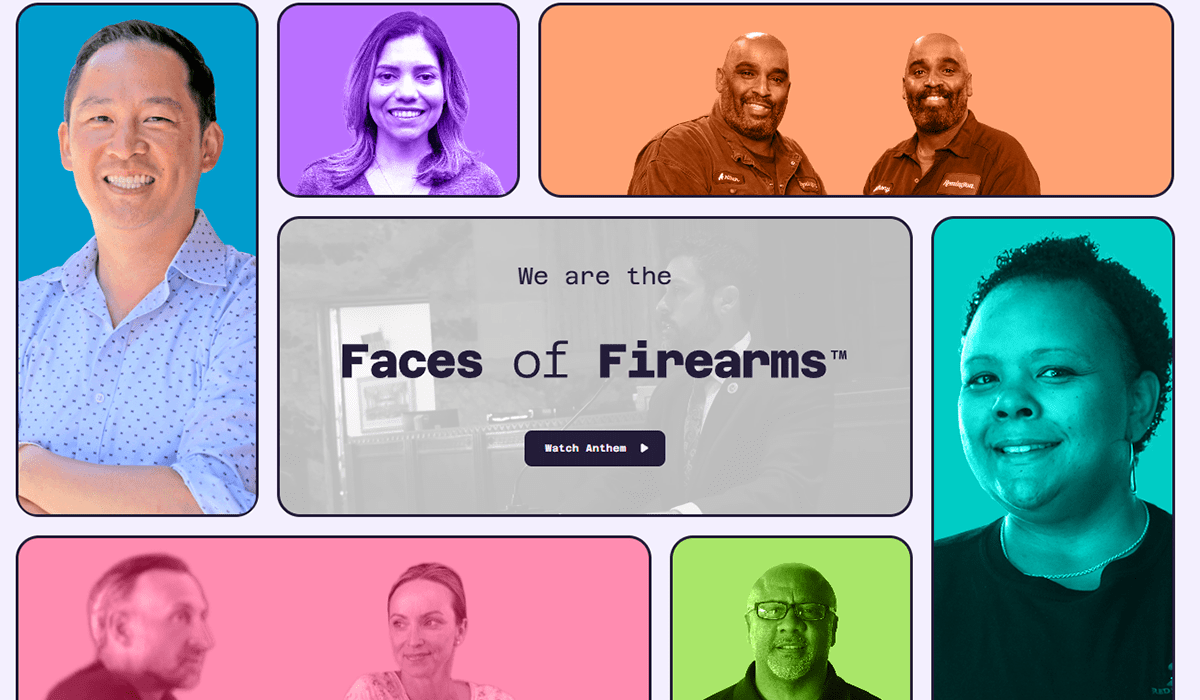 Back to News
Back to News
September 17, 2025
Johns Hopkins Gun Control Survey Doesn’t Say What Authors Want It to Say
The Johns Hopkins University Bloomberg School of Public Health’s Center for Gun Violence Solutions released its 2025 National Survey of Gun Policy. Unsurprisingly, the results of the research project do not say what the researchers would have you believe.
The Center for Gun Violence Solutions was created in 2022 when Johns Hopkins University announced a partnership with billionaire former New York City mayor and failed presidential candidate Michael Bloomberg. Bloomberg, of course, is the financial backer behind the gun control groups Everytown for Gun Safety, Moms Demand Action and Mayors Against Illegal Guns. He also funds The Trace, which is a mouthpiece for gun control that has infiltrated newsrooms under the guise of “collaborations.”
The entire purpose of the partnership is to hijack health care research to restrict the Second Amendment rights of law-abiding Americans under the cover of “science” and study criminal gun misuse through a lens of “public health.”
In fact, the program’s co-director stated, “We will now have even more capacity to bring meaningful policy change through evidence-based advocacy.” But pre-determining policy results and pushing research as advocacy doesn’t make the Johns Hopkins gun control project a research institution. It makes it a special-interest group. Its newly released “survey” on gun policies should be viewed through this prism.
Results Are In
The Johns Hopkins report states it surveyed twice as many non-gun owners as gun owners and 500 more self-described Democrats than self-described Republicans. Readers should keep that in mind when considering the “findings.”
What are those findings? “The survey consistently finds broad public support for firearm policies based on public health research and evidence,” the summary states. The problem for gun control advocates is that some of their favored policies are flat-out unconstitutional.
For instance, the survey suggests 74 percent of Americans “support laws that require a person to lock up the guns in their home when not in use.” There is just one big brick wall standing in the way of mandatory storage laws the Johns Hopkins center would love to institute – the Constitution.
In its 2008 landmark Heller decision, the U.S. Supreme court ruled that Washington, D.C.’s mandatory firearm storage requirement for firearms while “not in use” in the home violated the U.S. Constitution because the law prevents firearms from being used by law-abiding Americans for self-defense. NSSF encourages all gun owners to practice safe and responsible firearm storage that works for their individual situation but opposes unconstitutional mandatory storage laws.
Permission to Purchase
Another policy for which the Johns Hopkins researchers advocate is “permit-to-purchase” laws that require would-be gun owners, who are already law-abiding Americans who pass an FBI National Instant Criminal Background Check (NICS) verification, to jump through even more hoops to exercise their Constitutional rights. As Johns Hopkins points out, lawful firearm purchasers would also have to submit an application to state or local police, get fingerprinted, undergo an additional redundant background check, complete a mandated and often seldom-offered course and meet other legislatively required training requirements.
“Requiring a license or permit to purchase a handgun reduces firearm homicides and suicides, as well as diversions of guns for crime use, and shootings of law enforcement officers. It is one of the most effective policies we have to reduce gun violence,” Center co-director Cassandra Crifasi said in the survey results. The survey claims 72 percent of Americans support permit-to-purchase schemes.
NSSF disagrees. Permit-to-purchase laws are unconstitutional under the U.S. Supreme Court’s 2022 Bruen decision and are similar to unconstitutional poll or sin taxes. Discretionary permit-to-purchase laws, like the one enacted by Colorado Gov. Jared Polis earlier this year, make exercising Second Amendment rights only permissible with a state-approved permission slip.
The Johns Hopkins center’s co-director’s claim that “permit-to-purchase” laws “reduces firearm homicides” is also flat wrong.
NSSF analyzed data from the FBI’s crime dashboard to look at California, a state with strict gun control, including a “permit-to-purchase” law. Between 2021-2024, homicides involving a firearm in the Golden State increased by 151.6 percent. Across the country, in New York – another “permit-to-purchase” state – homicides involving a firearm there jumped more than 53 percent during the same time.
No Due Process
Another policy proposal the Johns Hopkins researchers asked survey respondents about was Extreme Risk Protection Order (ERPO) laws, also known as “red flag” laws. The survey says falsely that a red flag law “is a civil order with due process protections [emphasis added] that temporarily restricts firearm access for an individual who is behaving dangerously or presents a high risk of harm to self or others.” The center’s survey suggests 77 percent of Americans support so-called “red flag” laws.
Johns Hopkins Gun Violence Solutions Center core faculty member Shannon Frattaroli stated, “ERPOs and DVPOs are two powerful examples of how we’re leveraging evidence to shape effective interventions and implementation strategies that improve the safety and well-being of families and communities across the country.”
First, no ERPO law includes adequate Due Process rights for the person subject to the order. In fact, NSSF has never opposed a proposal that includes these critical protections, but no law so far has included them. A law-abiding American cannot be denied their property – their firearms – without the opportunity to quickly go in front of a judge and make their case against the confiscation.
Beyond Constitutional concerns, the researchers’ data are once again wrong. NSSF analyzed data over the last 10 years (2014-2025) and found that 60 percent of true criminal mass shooting events have taken place in states that have had a “red flag” law in place. More than half – 18 of 30 – took place in states with ERPO laws and 15 of those 18 mass murderers committed their horrific crimes in a state with a “red flag” law in place had demonstrated prior signs of mental health issues. Nearly 50 percent (48.8) of mass murderers in the data set had a criminal history and/or police intervention prior to the tragic event.
After a simple, cursory examination of the Johns Hopkins survey, the final product makes more sense. It is a gun control product performed by gun control advocates. The purpose of manipulating data was to arrive at pre-determined outcomes to push more gun control policies on law-abiding Americans. There are more holes in the research than a block of Swiss cheese.
You get what you pay for and remember, the check was written by Michael Bloomberg.
Categories: Featured, Government Relations, Top Stories









